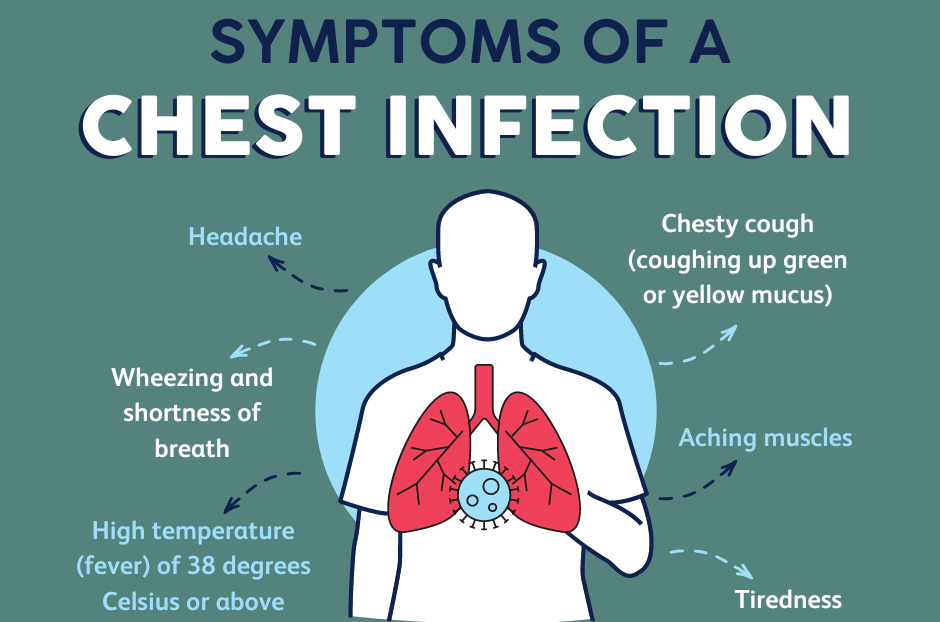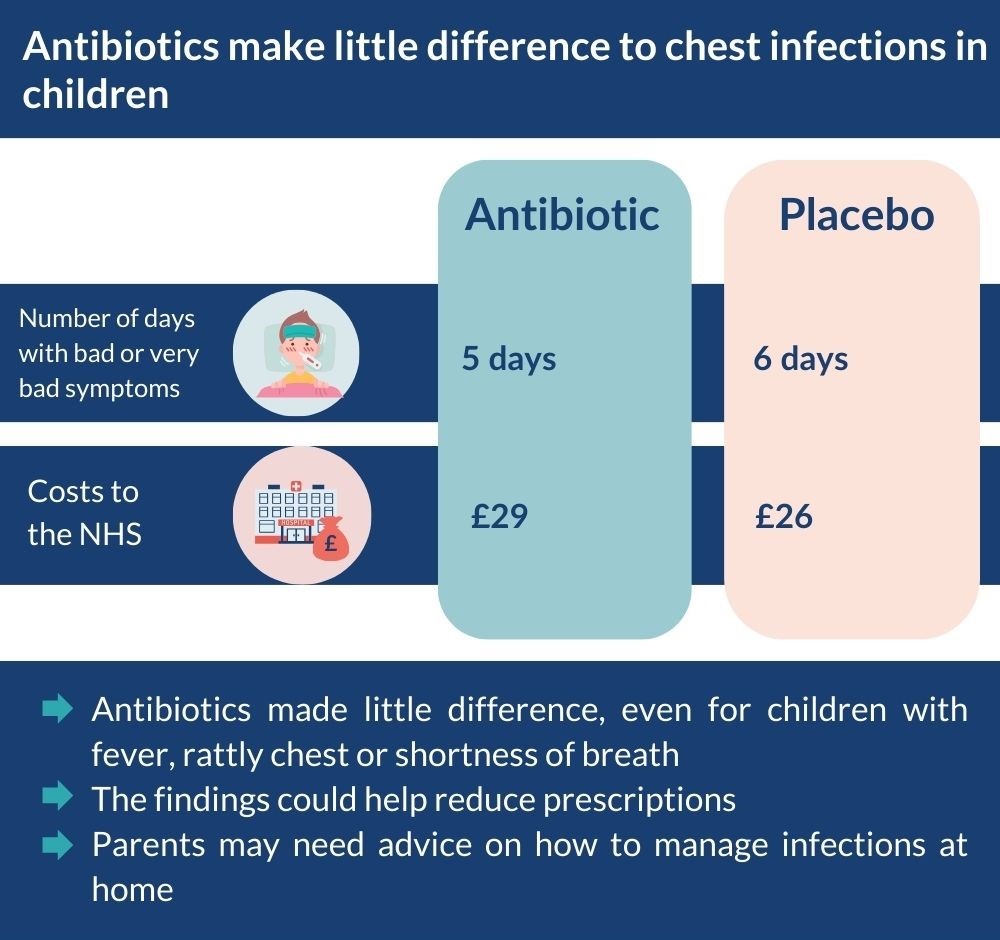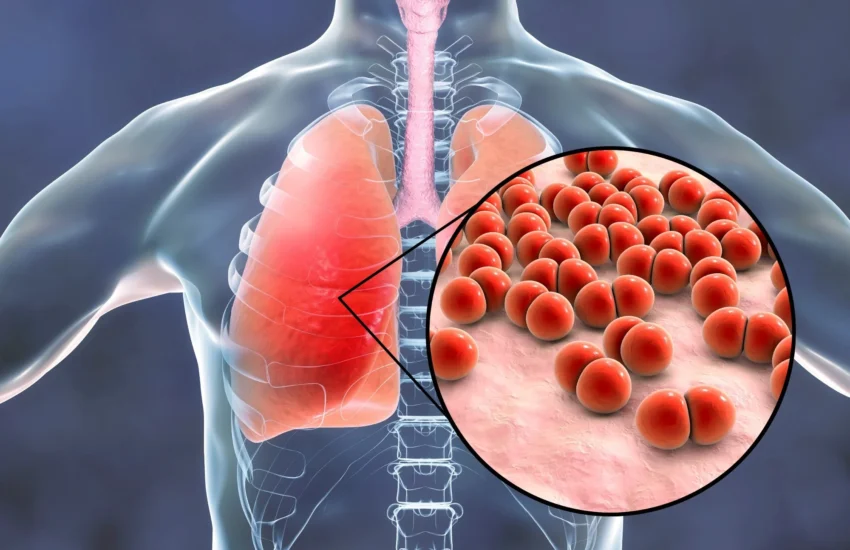What is Chest Infection?
One kind of respiratory illness that affects the lower portion of your respiratory system is a chest infection. The bronchi, lungs, and windpipe make up the lower respiratory tract. The two most typical forms of infections in the chest are pneumonia and bronchitis. The intensity of chest infections can vary from moderate to severe.
Types
An illness of the airways or lungs is known as a chest infection. Pneumonia and bronchitis are the two most common forms of chest infections. While bacteria cause most cases of pneumonia, viruses cause the majority of cases of bronchitis. When an infected individual coughs or sneezes, the virus usually spreads. This causes microscopic fluid droplets carrying the bacteria or viruses to be released into the atmosphere, where people can inhale them.
Additionally, if you sneeze or cough onto your palm, an object, or a surface and another person shakes their hand or contacts those areas before touching your mouth or nose, they could also come into contact with the illnesses.
Sign And Symptoms
Chest infections can cause the following symptoms:
- Wheezing
- Fever
- Headache
- Feeling out of breath
- Soreness in your chest

- Phlegmy or watery chesty cough
- Aches and pains in the muscles
- Feeling worn out or exhausted
- Green or yellow mucous while coughing
Learn More About Sign And Symptoms of Chest Infection.
Causes of Chest Infection
Either a viral or bacterial infection might result in a chest infection. The kind of infection will determine the precise reason. For instance, most episodes of pneumonia are caused by bacteria, although bronchitis is frequently brought on by viruses. When someone coughs or sneezes when sick, respiratory droplets are released into the air, which might infect you with a chest infection. That’s because the infection is spread via respiratory droplets. Furthermore, the infection can also spread by touching your lips or face after coming into touching a surface infected with a germ or bacterium. A chest infection could be more likely to occur if you:
- Are older
- Are expecting
- Smoke
- Are a newborn or early child
- Possess a long-term medical condition, such as diabetes, asthma, or chronic obstructive pulmonary disease (COPD)
- Possess a compromised immune system as a result of receiving an organ transplant or from an illness like HIV

Diagnosis
- After hearing about your symptoms and performing an examination, your physician will be able to diagnose you with a chest infection.
- If you have acute bronchitis, an infection of the major airways (bronchi) in your lungs, and your signs and symptoms are minor, often no testing are necessary. The following tests can be necessary if your chest symptoms of infection become more serious and you need to visit the hospital:
- To confirm the diagnosis and assess the severity of the illness, an X-ray of the chest may be performed.
- Tests for blood and phlegm (sputum) may be conducted to identify the specific bacteria or germ producing a serious respiratory infection (pneumonia). This aids in selecting the most effective antibiotic medication.
- The pneumonia-causing germ (bacterium) can occasionally develop resistance to the first drug. Sometimes switching to a different antibiotic is necessary.
While the majority of chest infections are benign and resolve on their own, there are certain cases that can be extremely dangerous or even fatal. Acute bronchitis, an infection of the major passageways (bronchi) in the lungs, normally clears up on its own in 7–10 days without the need for medication. You should consult a general practitioner (GP) if you think you may have pneumonia, a serious lung infection.
Antibiotics
Antibiotics are medications that treat infections brought on by bacteria; they are ineffective against viruses. The physician is unlikely to give antibiotics unless your examination and symptoms point to pneumonia, unless you have a chronic illness affecting your chest.

How to Manage Lung Infection at Home
- Get lots of rest.
- Drink a lot of water to keep your body from becoming dehydrated and to assist in releasing mucus in your lungs, which will facilitate coughing.
- Inhale steam fumes, possibly with some menthol mixed in. Inhale steam from a basin of hot water to aid in clearing your chest of mucus. When a child coughs, never treat them with a pot of hot water to avoid accidentally burning them; instead, run a very hot shower to create a steamy bathroom, and sit in the area with the child securely away from the steaming water.
- Using an additional pillow while you sleep will help maintain your chest free of mucous and facilitate better breathing. Avoid sleeping flat.
- Aspirin, ibuprofen, or paracetamol can be taken to lower a fever and relieve headaches, aches, and pains. (Note: Aspirin should not be taken by minors under the age of sixteen.)
- If you smoke, you should strive to give it up permanently. Smokers are more likely to get pneumonia, chest infections, major lung illnesses, and the long-term effects of lung disease, heart disease, and cancer.
- A hot drink of lemon and honey helps ease the soreness in your throat caused by coughing.
Prevention
You can take steps to lessen your risk of developing a chest infection as well as to prevent others from getting one. For example, frequent hand washing lowers the possibility of pathogens entering your system.


One comment